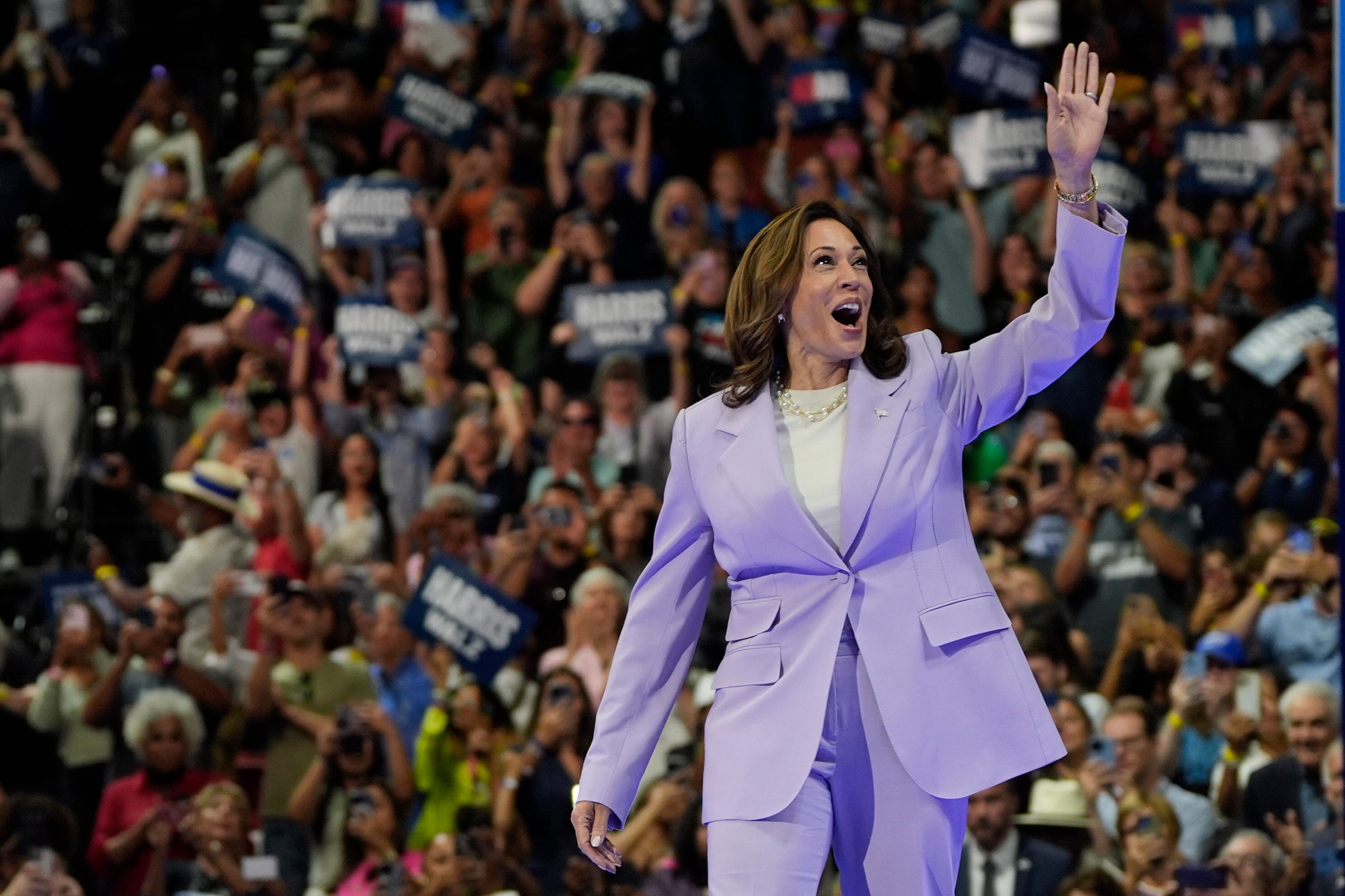Trump and Harris now both advocate no tax on tips — but what are the potential pitfalls?
No tax on tips is a catchy slogan but how would it work in practice?
Your support helps us to tell the story
From reproductive rights to climate change to Big Tech, The Independent is on the ground when the story is developing. Whether it's investigating the financials of Elon Musk's pro-Trump PAC or producing our latest documentary, 'The A Word', which shines a light on the American women fighting for reproductive rights, we know how important it is to parse out the facts from the messaging.
At such a critical moment in US history, we need reporters on the ground. Your donation allows us to keep sending journalists to speak to both sides of the story.
The Independent is trusted by Americans across the entire political spectrum. And unlike many other quality news outlets, we choose not to lock Americans out of our reporting and analysis with paywalls. We believe quality journalism should be available to everyone, paid for by those who can afford it.
Your support makes all the difference.Both Donald Trump and Kamala Harris have now said that they would scrap taxes imposed on income from tips given to service industry workers.
That doesn’t mean it is a guarantee to change under the next president.
The former president first pushed the idea at a rally in Las Vegas in June. The vice president did the same last night in the same city having been endorsed by the Culinary Union, which represents workers who would benefit most from such a policy.
As a center of tourism, the votes of people who work in hotels, restaurants, bars and casinos are crucial to winning the state of Nevada, one of the key battlegrounds in the 2024 election, which Democrats have won in the past four presidential contests.
At Saturday’s rally at the University of Nevada-Las Vegas, Vice President Harris said: “When I am president, we will continue our fight for working families of America, including to raise the minimum wage and eliminate taxes on tips for service and hospitality workers,” she said.

An apparently furious Trump took to Truth Social after hearing her remarks, writing: “Kamala Harris, whose ‘Honeymoon’ period is ENDING, and is starting to get hammered in the Polls, just copied my NO TAXES ON TIPS Policy.”
He continued: “The difference is, she won’t do it, she just wants it for Political Purposes! This was a TRUMP idea - She has no ideas, she can only steal from me. Remember, Kamala has proposed the LARGEST TAX INCREASE IN HISTORY - It won’t happen. MAKE AMERICA GREAT AGAIN!!!
He later added: “How long will it be before Kamala Harris comes out with another “TRUMP” policy like, “No Taxes will be paid by our Senior Citizens on Social Security?” She’s looking really bad now! Everyone is waiting to see what idea, or policy of mine, she will copy next.”
The Harris campaign shed more light on her proposal, noting that it would require legislation and that as president she would work with Congress to craft a bill that comes with an income limit and strict requirements to prevent hedge fund managers and lawyers from structuring their compensation in ways to try to take advantage of the policy.
She would also push for the proposal alongside an increase in the minimum wage.
Bloomberg reports that were such a proposal to pass into law, tax bills would be lowered for some 6 million hospitality workers who reported a total of $38.3 billion in tipped income in 2018 — the most recent year for which Internal Revenue Service data are available. That averages out to about $6,250 per tipped worker.
Both of Nevada’s Democrat senators, Jacky Rosen and Catherine Cortez Masto, have backed such legislation, and bills have cropped up in both the Senate and the House.
But that doesn’t mean the policy isn’t without its pitfalls or political hurdles to clear before becoming law.
According to the Tax Foundation, citing the Yale Budget Lab, only 2.5 percent of the workforce work in tipped jobs, and only 5 percent of workers in the bottom 25 percent of earners do. Any policy would have no impact on the majority of low- and middle-income earners.
Additionally, some tip earners do not pay personal income taxes as they pay less in taxes than the standard deduction.
Further, having one type of income untaxed versus taxed wages could lead to more businesses moving to more of a tip-based payment approach — such as for servers in a restaurant — and those who already use tipping to increase suggested tip amounts.
The Harris campaign’s statement appears to head off some of that from the get-go when it talks about non-tipping industries trying to switch payment models. Another catch is that to qualify as a tip the payment must be voluntary and not previously agreed. For a lawyer to pre-agree a tip as part of their compensation would be not be covered.
Existing bills do not include much in the way of rules to prevent any of this happening, nor anything that would not result in making taxes more complex for anyone to whom it applies.
The move would also exclude many to whom a tipping wage model would not work, for example, a cashier or store worker versus a server or taxi driver.
The Tax Foundation suggests a more equitable model would be to increase the standard deduction thereby giving a tax cut to everyone regardless of how they are paid — though it might not be as catchy a campaign slogan.

Join our commenting forum
Join thought-provoking conversations, follow other Independent readers and see their replies
Comments